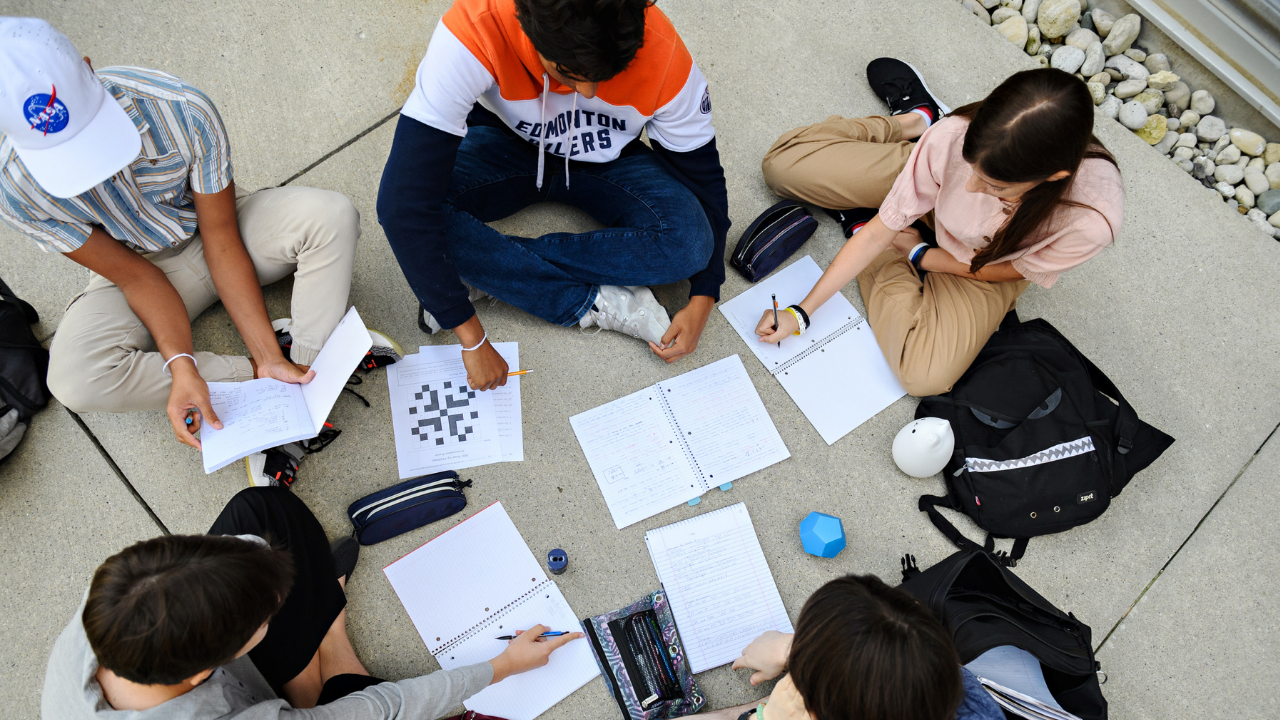With a goal to stimulate an interest in mathematics and computing, the Centre for Education in Mathematics and Computing (CEMC) has been offering math and computing contests for over 60 years now. CEMC contests are a great fit for students with a range of abilities—from learners who want to explore and develop their confidence in mathematics and computer science, to advanced students who wish to stretch their limits. However, there are a number of myths surrounding contests, particularly regarding which students should participate and how educators can play a role in encouraging involvement. These misconceptions often lead to uncertainty, with many students and educators questioning whether contests are suitable for all learners or only for a select few.
Former high school educators and now CEMC Senior Resource Design Specialists, Jeff Anderson, Marcel te Bokkel, and Sandra Emms, have seen firsthand the impact that the contests have had on students, and are offering some useful insights and perspectives into some potential questions.
Marks vs scores
While many may believe that only students with high grades are destined to excel in the contests, this is not necessarily the case.
Given the difficulty, some high achieving students with excellent marks may receive mid-range scores in contests. Yet, there may also be participants with lower classroom marks that score extremely well on challenging contests like the Euclid contest. As classroom leaders, educators should encourage students who have the potential to benefit from participating in contests, especially those who may lack confidence and need an extra push.
For Anderson, the positive outcome is unequivocal: “Generally speaking, for students who write the contests, their marks eventually improve. Contests teach them about perseverance and motivate them to perform better on any tests they take.”
Educators as influencers
As classroom influencers, educators make the study of mathematics an enjoyable endeavour that brings together a community of passionate and highly capable students. Their positive attitude inspires students to believe in themselves and give their best in every task. This includes students from younger age-groups, as early involvement from middle school students with the Gauss contests, promotes ongoing learning and growth for later participation in the Euclid contest.
Holding review sessions to deconstruct questions ensures that students take away meaningful insight to further their understanding, confidence, and interest in the subject.
Teamwork
Additionally, Emms recalls another positive outcome, where team competitions inspire younger members and provide a collaborative and motivational environment. “There is mentorship happening without even thinking about it. In team competitions, it is heartening to see older students on the team taking the lead and delegating questions to younger students, making sure everyone feels included and has a role in the team.”
The growth curve that students go through is noticeable, as the contests inspire confidence, perseverance and ambition. In stimulating their interest in the subject, students also gain the tools required to transition into a university setting.
Contest preparation
As for some pieces of advice for educators, all three recommend that educators not be intimidated. The CEMC provides valuable resources that educators can utilize, such as Past Contests, Courseware, Problem of the Week, Math Circles, etc., that can support educators and students with contest preparation and introduce the contests to potential future participants.
te Bokkel emphasizes how this is bigger than a math contest, “This is a great opportunity for educators to build lasting relationships with students. Find joy in the process and it will be an enjoyable experience for both students and educators.”
Anyone with an interest in mathematics and/or computer science who is looking for a unique approach to these subjects should consider participating in contests. These contests ultimately offer an opportunity for all students to find enjoyment or even excel.
For additional information and resources on the Centre for Education in Mathematics and Computing, please visit: https://cemc.uwaterloo.ca/resources
Story by Gabriella Beram
